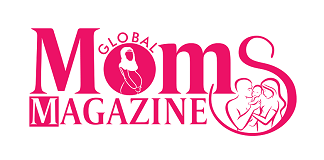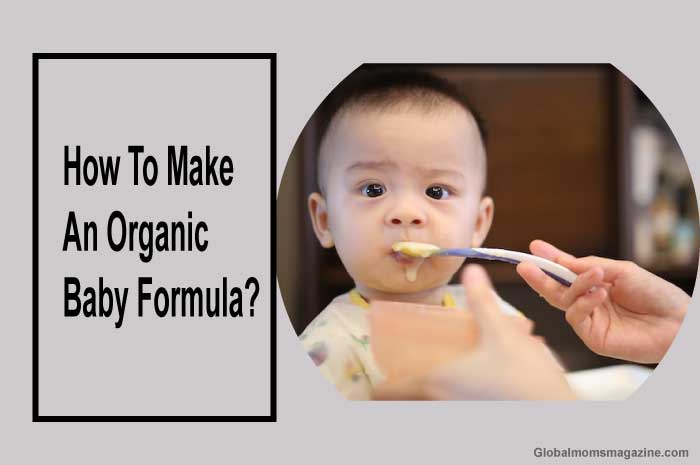All parents desire to provide their children with the best, so when it comes to feeding your baby, there are lots of factors to consider – from choosing a preferred method to learning how to make baby formula on your own.
In this article, we want to tell you everything about organic baby formulas and why some of the time homemade feeding may be harmful. If you want to have a prepared formula without pesticides, chemicals, additives, and hormones, this detailed overview is exactly what you need.
Understanding Organic Baby Formula: What Does Organic Really Mean?
When it comes to infant formula, the word organic means that it is produced from ingredients without herbicides, pesticides, antibiotics, and hormones. The ingredients for such a powdered baby formula come from organic farms where crops are grown naturally and animals have enough space and nutrients. A filled bottle with organic nutrition doesn’t contain genetically modified organisms, synthetic additives or preservatives. It also doesn’t have antibiotics or growth hormones which can significantly violate your baby’s development.
Finally, such infant formulas follow stricter standards and certifications that ensure the highest quality of every component. Here are only some regulatory bodies and labels you can notice: European Food Safety Authority, Regulation No 609/2013 on Food, and the European Commission’s rules on organic production. At BabyMilkBar – an organic baby formula shopall brands follow the highest European standards and ensure that your children get the best.
Read more: The Success Story of Baby Cereals.
How to prepare organic baby formula?
It is extremely easy to make organic baby formula even if you have never done it before. First of all, choose the right type of formula (liquid or powdered) and manufacturer. If you choose powdered baby formula, prepare all the ingredients you will need in the process: the formula itself, filtered or bottled water, baby bottles and nipples that were previously sterilized, and a measuring scoop.
Instructions:
- Heat water until its temperature becomes 104 – 122 F (40 – 50C);
- Add water to the bottle as written on the formula package;
- Measure the necessary amount of powder with a measuring spoon;
- Add milk powder to the bottle and shake it;
- Let the formula cool down to around 98.6 F or 37C. Always check the temperature before feeding your child.
Read more: Baby Food Packaging: Is Packaged Food Good for Babies?
The Risks of Homemade Baby Formulas: A Cautionary Note
While the market for baby nutrition is extremely diverse, some parents still choose homemade options over powdered infant formula. But let us warn you that this choice may lead to serious consequences, such as:
Wrong nutrient balance
It is close to impossible to prepare a baby formula that would meet all nutritional requirements. Infants and toddlers have different needs for carbohydrates, fats, vitamins, and minerals, and their imbalance can lead to critical changes in growth and development.
Bacterial infections
Unlike a commercial bottle of formula, a homemade baby’s bottle doesn’t undergo regular checks and certifications, so it has higher risks of bacterial infections, leading to serious problems. Plus, homemade feeding may cause allergic reactions more often.
Digestive problems
Wrongly prepared homemade powdered formula can be hard on sensitive tummies which results in lots of digestive problems – bloating, diarrhea, constipation, and so on.
Read more: Can Adults Drink Baby Formula? – Helpful Information?
Side factors
Finally, there are other risks that many parents overlook – poorly boiled water quality and wrong or absent sterilization of kitchenware. Formula preparation and storage under direct sunlight can also be harmful. Don’t forget to wash your hands before preparing your baby’s formula.
Balancing Act: The Nutritional Complexities of Infant Formula
A powder formula may seem unimpressive but it provides a perfect balance of tens of nutrients for the organic growth of your baby. Here are only some of the crucial nutrients commercial baby formulas contain:
- Proteins like cow’s milk or soy are processed for simpler powdered formula digestibility;
- Carbohydrates that are close to breast milk come in the form of lactose, corn syrup, and maltodextrin;
- Fats as the basic source of energy and proper development of the brain and nervous system. The most common powder formula fats are vegetable oils;
- Vitamins and minerals enrich feeding with useful nutrients: vitamins A, B, C, and D, as well as iron, magnesium, and zinc.
All these elements are combined in scientifically-based proportions depending on the child’s age and special requirements. Replicating these proportions at home is very difficult and can bear potential harm to your baby.
Expert Opinions: Why Health Professionals Warn Against Homemade Baby Formula
International food and nutrition authorities agree that homemade infant formulas may be very dangerous. They conduct regular checks and tests and publish reports so that parents can make informed decisions.
For example, the World Health Organization supports breastfeeding as the best option and commercial formulas if the first is impossible. Food Safety Experts educate parents on the risks of microbial infections if hygiene and preparation practices of homemade formulas are violated.
If for some reason you still want to switch to homemade bottle feeding, we strongly encourage you to consult your pediatrician. They know your baby’s medical history and have the necessary knowledge to give you the best advice.
Alternative Solutions: Safe Ways to Customize Your Baby’s Nutrition
Fortunately, there are many safer alternatives to homemade powdered baby formulas that you can switch to. For example, breastfeeding and commercially prepared feeding come in the form of powder or liquid ready-to-feed formula. There is also expressed and donor milk, hydrolyzed formulas and combination feeding. If children have lactose intolerance, allergies, premature birth, or other specific indicators, manufacturers offer specialized formulas that help to avoid lots of problems.
To choose the best nutrition for your baby, start by contacting your paediatrician. Share your concerns, discuss past illnesses, conduct regular check-ups, and don’t be afraid to ask questions on preparing formulas, popular brands, and feeding utensils. Together, you will surely find the best type of feeding that will ensure your baby’s comprehensive growth.
Choosing the Right Organic Powder Formula: Things to Consider
If you decide to choose organic formulas, there are a few factors to consider:
- Personal needs and preferences. Take into account your baby’s age, nutritional needs, budget, and availability of different formulas online and offline;
- Certifications from reputable authorities which ensure that formulas are made from natural ingredients and follow the highest industry standards;
- Organic ingredients without additives, GMOs, chemicals, and preservatives;
- Proper nutritive balance of carbohydrates, fats, proteins, and vitamins. They ensure the baby’s comprehensive growth;
- Availability of special formulas: lactose-free, vegetarian, hypoallergenic, and so on;
- Solid reputation. Read online reviews and talk to other parents to find out what formula powder they recommend;
- Sustainability – how manufacturers support the ecology and in what conditions their animals live;
- Proper packaging and storage ensure that a ready-to-use formula is protected and has a long shelf life.
Conclusion
Homemade infant formula can be rather dangerous for your baby – improper nutritive balance, bacterial infections, allergic reactions, and poor quality of bottled water may lead to serious diseases. Luckily, there are many safe alternatives – breast milk, ready-to-feed formula, donor milk, combination powdered formula, and more. To make an informed decision and understand the possible pitfalls of preparing infant formula, take your time and read as much information as possible.
At babymilkbar.com, You can find the best baby formula.

